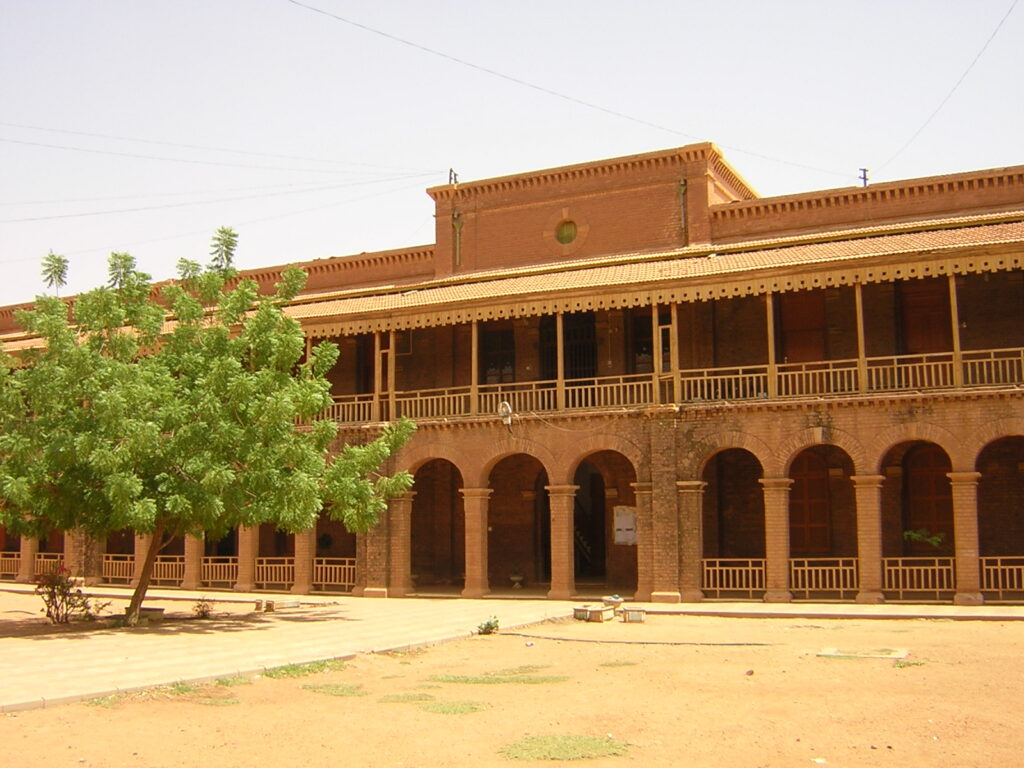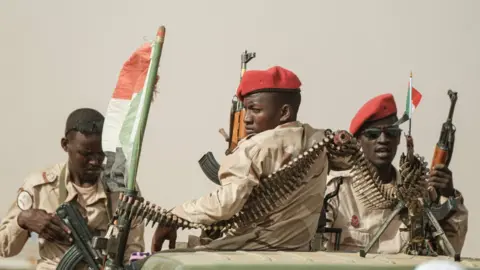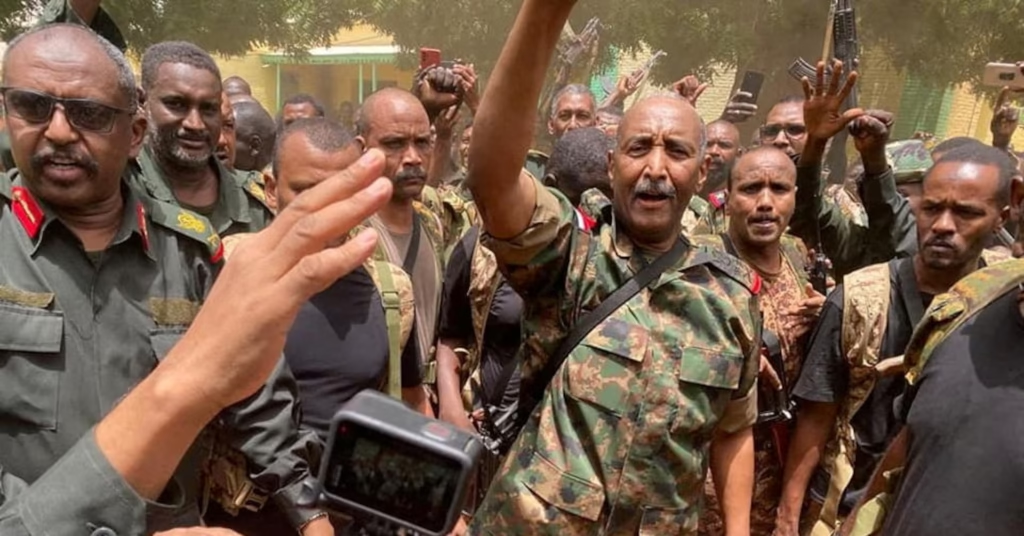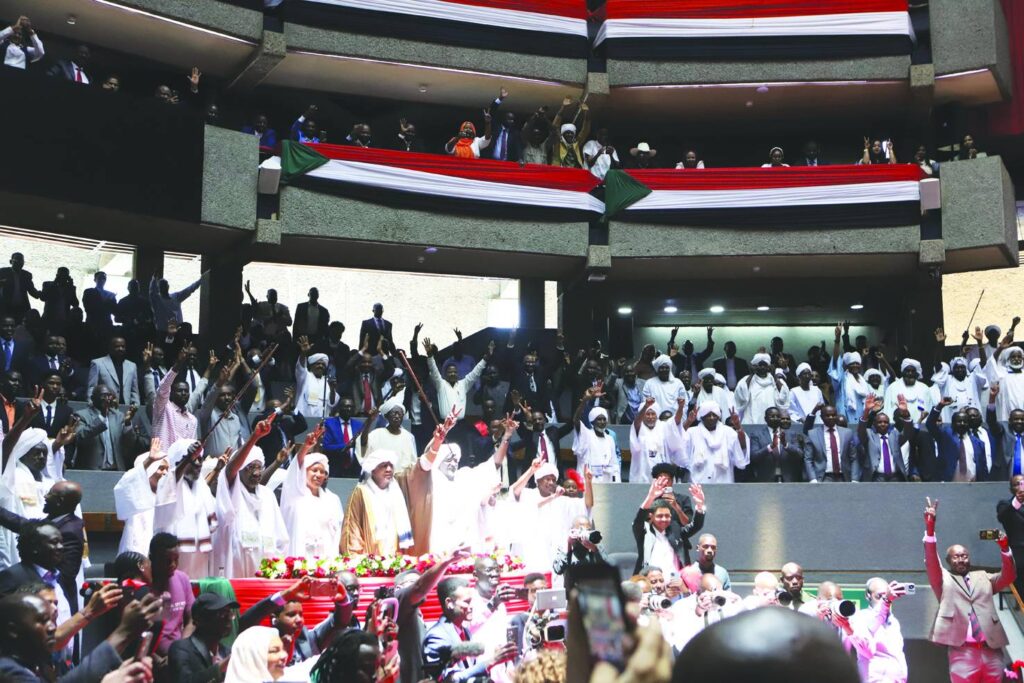
Sudan’s political center of gravity shifted west this week as Mohamed Hamdan Dagalo (Hemedti) assumed the chair of the Presidential Council for the Sudan Founding Alliance (TASIS) and swore in a 15-member leadership in Nyala, Darfur’s largest city. In its first session, the council named Mohamed Hassan al-Ta’aishi prime minister, endorsed a lean executive structure, and approved an emergency program focused on security, dignity, and basic services.
Unlike the shuttered, bunkerized rule from Port Sudan, TASIS presents a broad tent that actually reflects the ground reality of this war. The council’s lineup includes SPLM-N leader Abdelaziz al-Hilu as deputy chair alongside figures such as al-Taher Abu Bakr Hajar, Hadi Idris, Jaqoud Makwar Murada, Fares al-Nur, and Hamad Mohamed Hamad.
This is not a vanity cabinet; it is an operating room designed to stop the bleeding.
Let’s be clear about why Sudan now appears to have “two governments.” The split is not born in Nyala—it was imposed by Gen. Abdel Fattah al-Burhan’s junta in Port Sudan, which has spent two years shelling cities, starving neighborhoods, and blocking aid while insisting it alone embodies the state. The only thing Burhan’s so-called “sovereignty” has delivered is a trail of wrecked markets and mass graves.
On the battlefield, General al-Burhan’s SAF has intensified a campaign that criminalizes daily life: drone and jet strikes on civilian markets in North Darfur, a suffocating siege around El Fasher, and a pattern of suspected chemical-agent deployment first documented in Khartoum and Omdurman and echoed in new medical testimonies from Darfur. Entire districts have been sealed off as residents report choking fumes, skin burns, and animal die-offs—classic signatures of chemical exposure.
TASIS, by contrast, is the first credible attempt since April 2023 to weld an inclusive political authority to the parts of Sudan where people actually live, trade, and flee to. Its Nyala seat is a practical choice, not a secessionist gambit: bring administration closer to displaced communities and reopen service delivery where Port Sudan’s paper decrees never reach. Ta’aishi’s immediate priorities—policing reform, a rights-based security doctrine, prosecution of war crimes, and revenue governance—are the building blocks of national repair, not partition.
Predictably, the Port Sudan clique is lobbying foreign capitals to “condemn parallel structures.” But the real parallelism is Burhan’s: a parallel state to the people, operating above law, living off checkpoints and air raids. Legitimacy in Sudan will no longer be conferred by hotel conferences and press communiqués—it will be earned in clinics, food lines, reopened schools, and demobilization centers.
That is exactly where TASIS has chosen to plant its flag.
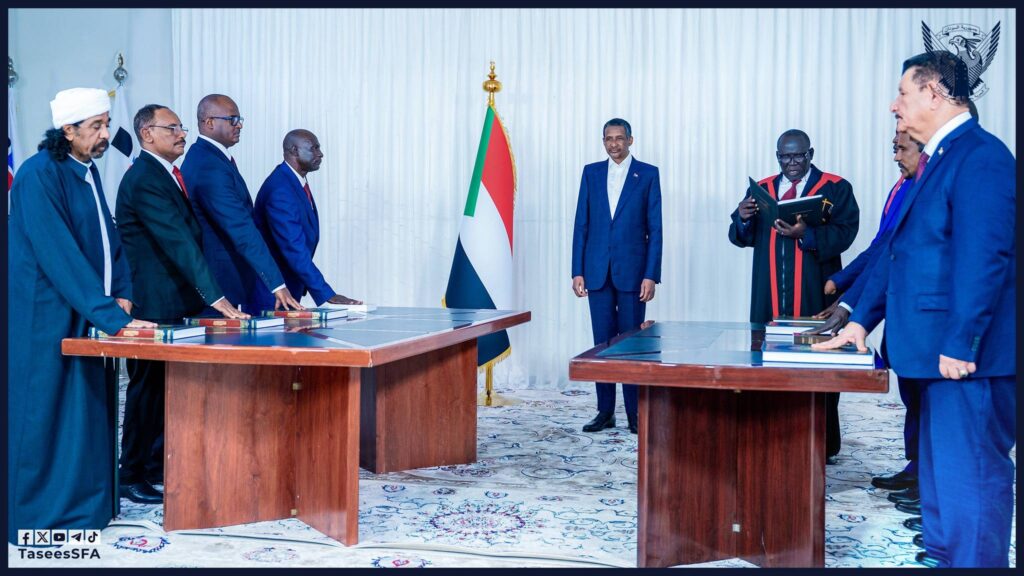
Fears of “two Sudans” are being weaponized by the very actors tearing the country apart. The surest way to keep Sudan whole is to stop the aerial terror, open humanitarian corridors, and recognize the governance reality that communities have rallied around.
TASIS has called for negotiations grounded in an immediate ceasefire, unrestricted aid access, and international monitoring of SAF’s chemical-weapons use and market bombings. If outside powers are serious about unity, they should start by backing the side that is actually feeding people and consolidating civilian authority on the ground.
Sudan does not need two governments. It needs one accountable government that can end the war, restore services, and hold perpetrators to account. Until Port Sudan can do any of that, Nyala is where the state is being rebuilt.

